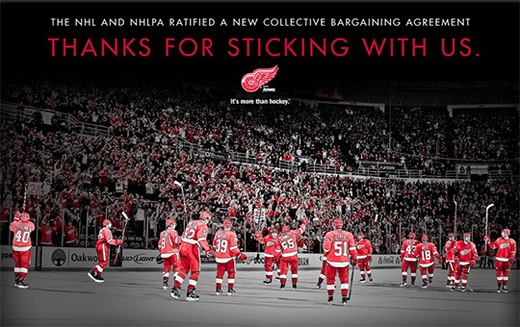On November 9, 2012, a federal district court in the State of Washington certified a class action against Papa John's pizza and some of its franchisees, with the potential for enormous damages, for sending unsolicited text advertising messages.
The case involves alleged violations of the federal Telephone Consumer Protection Act ("TCPA") based on texts sent to customers by Papa John's franchisees. It is significant because, among other things, it threatens Papa John's, a franchisor, with very significant potential damages -- direct or vicarious -- for the acts of franchisees.
The decision also vividly reminds all businesses that the TCPA applies to unsolicited text messages just as it does to unwelcome faxes.
Papa John's International, Inc. and Papa John's USA (collectively, "Papa John's"), enter into agreements with independent franchisees, who then own and operate Papa John's restaurants.
As franchisor, Papa John's imposes certain requirements; however, the franchisees generally control the operations of their own restaurants, including advertising.
But Papa John's employs Franchise Business Directors ("FBDs") to work with and assist the franchisees. Papa John's asserted that neither it nor the FBDs controlled the franchised businesses and, specifically, they had no control over advertising. Rather, the franchisees make all marketing decisions on their own.
The text message advertising program was offered and run by a third-party marketer, OnTime4U ("OnTime"), also a defendant. OnTime told the Papa John's franchisees that it was legal for them to send text message advertisements to their customers, without the customers' express consent, because of an existing business relationship.
Franchisees who signed up for the program provided OnTime with customer telephone numbers, derived from their point-of-sale system database of those who had bought pizza from them.
The POS System is a proprietary data system mandated for use by Papa John's. OnTime scrubbed the land lines and sent text advertisements to the remaining cell phone numbers, offering discount codes and soliciting the purchase of Papa John's products.
The plaintiff sued Papa John's, the franchisor, asserting that certain of its franchisees and OnTime violated the TCPA by causing text messages advertising pizza to be sent to her cell phone without obtaining her prior consent. The plaintiff claimed Papa John's was also liable for any TCPA violations because of its alleged involvement in the marketing campaign.
Papa John's denied it had any involvement with OnTime or the text message advertising campaign. It denied having any contract with OnTime, and thus asserted that the plaintiff's injury could not be fairly traced to it. Plaintiff alleged, however, that Papa John's had directed, encouraged and/or authorized its franchisees to use OnTime.
In granting certification of a class action, and refusing to dismiss Papa John's from the case, the court found sufficient evidence to support the plaintiff's allegations, including testimony and emails suggesting that Papa John's, through its FBDs, had encouraged franchisees to try OnTime's text marketing service.
The court also found evidence that Papa John's had allowed OnTime to promote its services to its franchisees at a Papa John's "Operators Summit." Based on that information, the court refused to dismiss Papa John's at this preliminary stage.
Importantly, we note that the court did not decide the case on the merits, but simply allowed it to proceed as a class action on the claim of TCPA violations.
However, while Papa John's may appeal, the decision presents significant risks to Papa John's.
The TCPA enables a private litigant to recover actual damages or statutory damages of up to $500 per violation. 47 U.S.C. § 227(b)(3). The plaintiff alleges that franchisees provided OnTime with more than 68,000 phone numbers, and the case potentially involves thousands of calls; accordingly, potential damages total well into the millions.
There are multiple lessons to be drawn from the case:
- Know the rules about text messaging and any form of unsolicited telephone contact. The TCPA prohibits making calls to any cellular telephone number using an automatic telephone dialing system, with only minor exceptions (emergencies and calls made with the customer's express prior consent). 47 U.S.C. § 227(b)(1)(A). Multiple courts have ruled that text messages are covered, and the penalties, as noted, are significant: as much as $500 for each call.
- Use caution to avoid taking on liability for the acts of your franchisees. It is too early to know whether Papa John's limited involvement will be sufficient to hold it liable, but even limited involvement in franchisee advertising, or other activities, may be sufficient for a court to find liability. It is alarming that OnTime's presence at Papa John's franchise convention promoting its advertising services was considered evidence that Papa John's controlled the text advertising and could be liable for OnTime's apparent advertising mistake. Also alarming is that the court cited local business development managers encouraging email to franchisees to try OnTime's services as support for Papa John's alleged control over the actual advertising.
- Be wary of legal advice from third-party vendors, particularly those who stand to profit from your business. Here, according to the court's decision, OnTime reportedly told Papa John's franchisees that it was legal to send texts without express customer consent in light of the pre-existing restaurant/customer relationship. This issue is in dispute, and the risk of a contrary finding is significant.
- If you are sued for an advertising violation, check your insurance policies for potential coverage. Legal fees can be enormous in such cases, but Commercial General Liability policies typically provide coverage for certain "personal and advertising injury" offenses, including the cost of defense. As always, coverage will depend on the specific policy language.
When in doubt, call us with your questions regarding advertising programs and best practices. The case is Maria Agne et al. v. Papa John's International et al,
Case No. C10-1139-JCC (U.S. District Court for the Western District of Washington).
For more details on this case, please contact Greg Everts at (608) 283-2460 / [email protected], David Beyer at (813) 387-0264 / [email protected] or your Quarles & Brady attorney.




